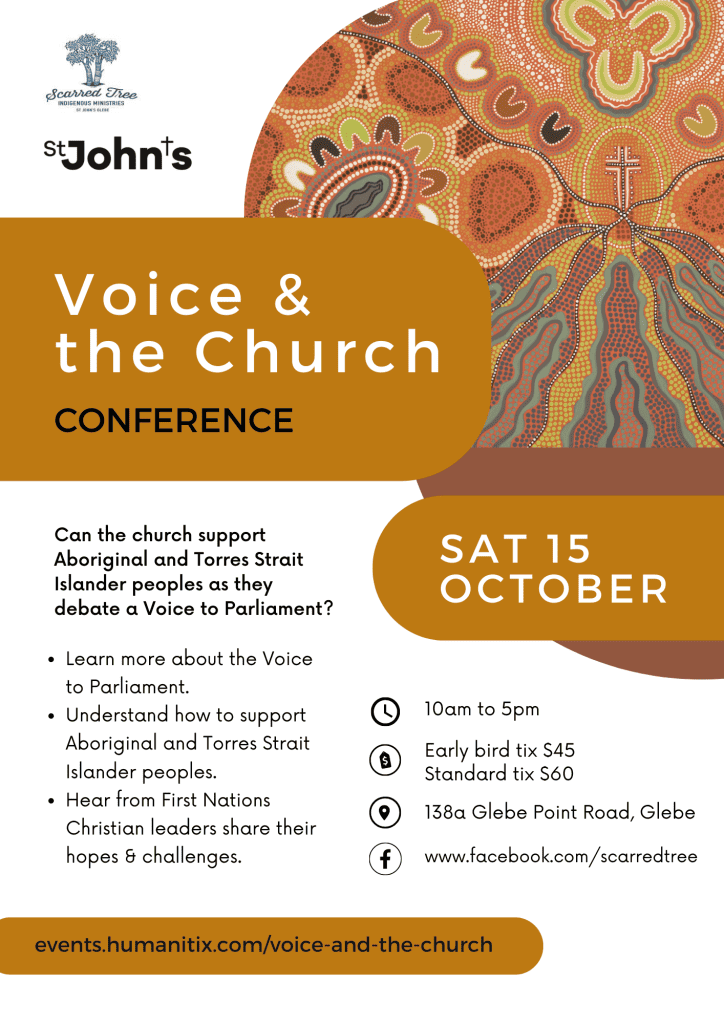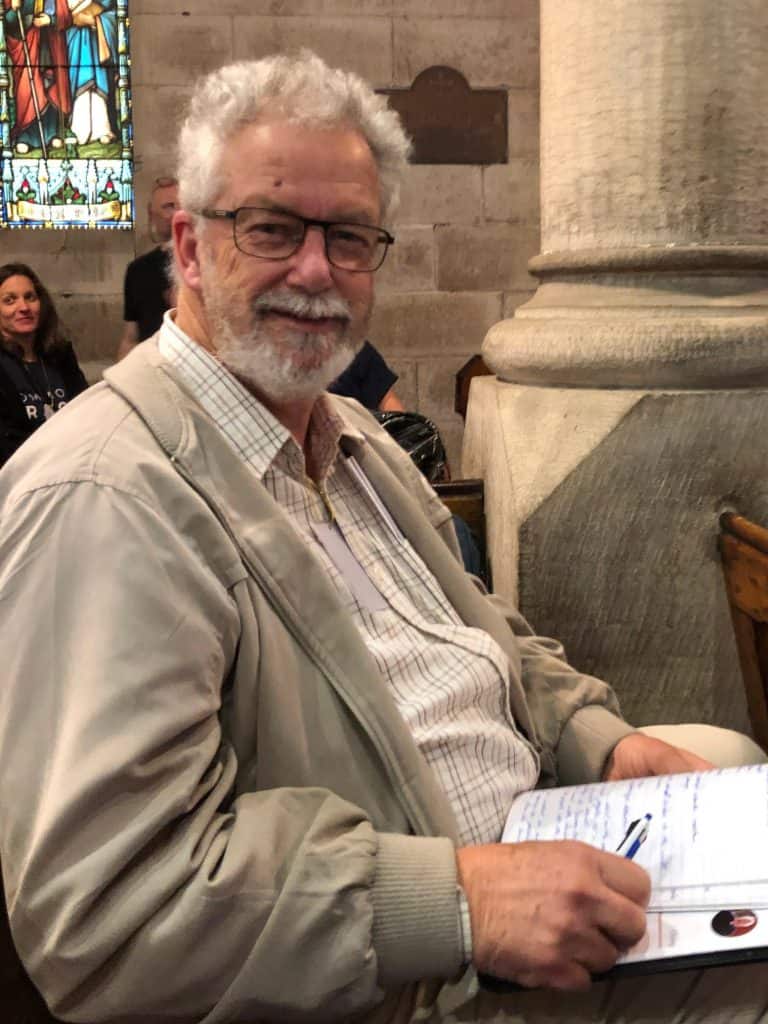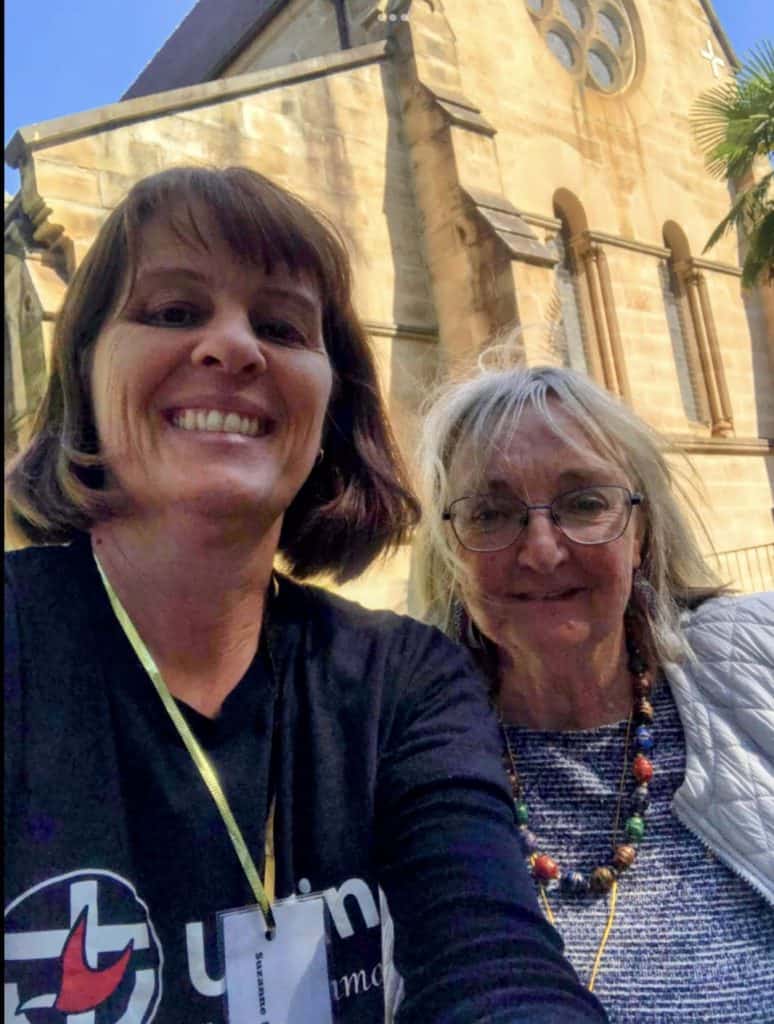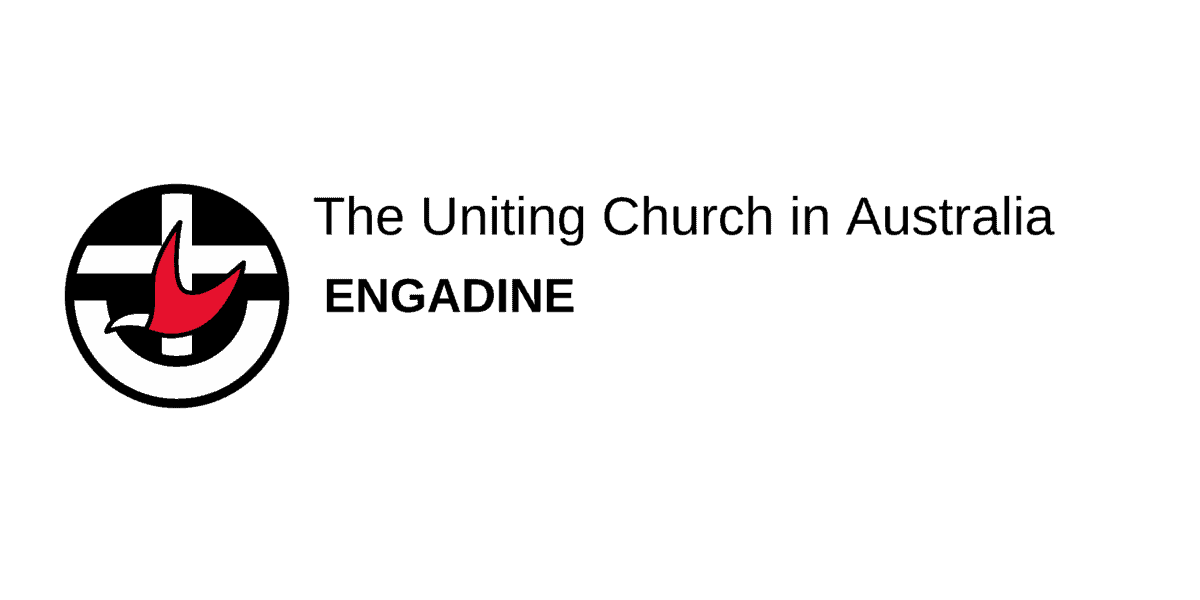
To build understanding of the future journey with the First Peoples, I attended this important conference with several members of Engadine Uniting Church. We were invited to this gathering as a safe space to engage in some challenging issues. I need to read, listen and learn more, and attending this event addressed part of that need.
For me, the day was not a happy experience; it was more one of mindful and respectful listening, one of hope, although the path to be taken to share in the walk together with First Peoples remains unclear. I felt privileged to be included in the sharing of these very personal stories and experiences.
All the presenters on the day provided emotive stories of their life’s experiences; I could hear and feel the tensions, anger, the pain, the determination, the hope and the tiredness in each of the speakers. It was encouraging being there to share their personal space and life experiences, ‘the truth telling’, stories of the disagreement, treatment of disrespect and injustice; their family solidarity, their hope for their future and for Australia to be a better place for all.
The stories reflected personal pain, the pain of history, frustration of not having justice, and the hope of change and their gracious invitation to others to share the journey to a fairer future. In our book review group at church we discuss what we read but hearing truth-telling from those that are experiencing it leaves a much deeper impact. On the Sunday after the Conference, I felt strangely tired, realising that as I had heard the stories that were shared, I wanted to better understand the past to walk together with the First Peoples into the future.
By hearing First People’s voices, I feel I am beginning to understand how much I do not understand.
More reporting and reflection:
One of the key objectives in Uluru Statement from the Heart is:
“We call for the establishment of a First Nations Voice enshrined in the Constitution.”
I found the Conference Covenant very meaningful and it provided insight to what the day would bring; a series of statements that I feel should be included in my own personal credo, mission and vision as a Christian. The covenant included the commitment to:
- Create a safe cultural space that acknowledges, respects, and accommodates difference and the well-being of the community.
- Stay curious and listen to others’ stories
- Be present and respectful, understanding that stories of injustice can be emotional
- Acknowledge that disagreement and conflict are normal parts of our lives in Christian community.
- Rely on the Spirit of God and the solidarity of the Body of Christ in its commitment towards peace and justice
Our church website has many links to the wider community, lots of stories of the Church people working in collaboration with like minded partners, so I consider that our mission and visionary statements:
‘The story of God is bigger, wider, more inclusive and welcoming that we can imagine. There is room here for everyone; there is room here for you’.
and
‘As followers of Jesus, we strive to create a healthy, inclusive, peaceful and just society in which all belong and find their sense of purpose.‘
align well with the Conference Covenant, statements that I find are meaningful guides to the space I want to be part of.
When attending seminars and conferences, to help me remember what I heard, I try to take notes on important issues. For this day I made many pages of notes, I will try to share some of what I heard in each session.


All the presenters, speakers including the reflective panel members, together with the majority of the organisers, had strong links to Country, advising of their nation origins and also of their strong connections to the Scarred Tree Indigenous Ministries and Common Grace (which is financially supported by our congregation).
On the day several keynote speakers shared their stories, the day started with Acknowledgement of Country from Dr Raymond Minniecon, Minister with the Scarred Tree Indigenous Ministries.
This was followed by the ‘Set the Scene’ by Te Raina Watego, also a member of the Scarred Tree Indigenous Ministries. It was at this time that the Conference Covenant was outlined and format of the day detailed: each session had a key speaker followed by a Reflection Panel who discussed what they heard from the session speaker, often providing some further background to the speaker.
I found the Reflection Panel discussion very effective and meaningful, drawing out what was said in the session, adding further insight and their own thoughts and feelings.

The Reflection Panel included three deep thinking women that were associated with Scarred Tree Indigenous Ministries and Common Grace, Larissa Minniecon, Safina Stewart and Bianca Manning.
Many of the speakers referred to and spoke from Bible passages to highlight that the injustice the First Peoples continue to endure, questioning how the bible text has been considered otherwise.
Prospectives of truth-telling:
For the first morning session I felt that Pastor Geoffrey Stokes spoke passionately about injustice he continues to see and be confronted with; he gave reference to:
– Psalms 24 Vs1-2 ‘The earth is the Lord’s and all that is in it, the world and those who dwell therein. For it was he who founded it upon the seas and planted it from upon the waters beneath.’ Pastor Geoffrey questioned how the First Peoples are yet to be included equally in the Lord’s world.
Another biblical reference was John’s Gospel where Jesus tried to explain the parable of the Good Shepherd.
– John 10 Vs10 ‘The thief comes only to steal, to kill, to destroy; I have come that men may have life and may have it in all its fullness, I am the good shepherd… I believe that the analogy that Paster Geoffrey provided was the comparison to the thief and the consequence of colonisation.
A significant fact that became clear to me is that not all First Peoples supported the Statement from the Heart, as this was highlighted by the first speaker. For me, there many issues affecting the First Peoples that need to be addressed, and addressed sustainably. The priority of the issues to be addressed vary between people; for example, Paster Geoffrey had walked out of the Uluru Convention Dialogue in opposition to the priority of pursuing the Voice as the first priority, as he highlighted the need to first establish basic human rights for the First Peoples.
The second morning session commenced with a presentation from Rev. Dr Rangi Nicholson with a greeting from our neighbours from the East (Aotearoa – New Zealand), with the phrase ‘Rest in Peace – Rise in Glory’

His opening words I found to be quite profound:
‘This is a ordained gathering
You are not here by chance
The seeds sown today will
grow in unexpected places.’
Dr Rangi shared his very interesting life’s journey and provided considerable insight to the 1840 Treaty of Waitangi; highlighting the initial Treaty Principals and the journey since.
Partnership • The sharing of power and decision making
Protection • The exercise of chieftainship and autonomy
Participation • Equity of access and participation – equity of outcome.
Progressive governments treated the Treaty as a ‘historical document’, and the Church also repressed the progress of the original principles.
However Dr Rangi outlined how the Treaty principals had been systematically and conveniently lost over time, and the survival of New Zealand’s First Peoples culture and language was in danger of being lost. There was a need for revitalised strategies to bring the Treaty back to life and rebuild what had been lost. This has not been a quick and easy process, involving petitions, reviews, and lots of commitment over the last 50 years. Focused strategies were required for the education system, and tribal strategies for restoration and transformation to bring original principles back to life and become part of community, workplace and the home. Dr Rangi advised that although much has been achieved in recent decades, issues still exist for justly and equably sharing of resources, with more work to be done.
Dr Rangi said the Church has much to do to address the outstanding issues. He has the Hope to ‘Walk into to the Future facing our Past’, with continued Truth Telling, and truly responding to the sharing justly and equitably, honouring the Treaty.
Many meaningful challenging statements were said in Dr Rangi Nicholson’s presentation, and I include some below. The church should:
– get its own house in order and become a transparent partner with first the peoples
– dream, and work to bold transformation
– support historical justice needs to be a priority especially with the young people
– respond boldly with love
– commit to breakdown the walls that divide
The Reflection Panel opened with the question.
‘What does it mean to be authentically indigenous? What does it mean to be authentically Christian?’
I do not know the answer, however it is a question that I have often had on my mind.
Other comments from the Panel that in noted, I hope I have heard them properly, these included:
– The Church needs to support the process, acknowledging that the Church is part of the problem, there is the need to defend and journey with the spirit of the First People.
– Truth telling is part of the repentance process.
– Work needs to be done on forgiveness, both giving and receiving; the power of love and hope provides the foundation.
– to those listening: Daring to begin the conversation and being thankful in having people listen to the conservation.
It was at this point we had a lunch break, to enjoy some sumptuous (healthy) food provided by the organisers, and more chatting while everyone took the opportunity of sharing St. Johns Church grounds. Actually I would have been happy to sit in a quiet space for this period, just to think a little about what had been shared in the morning: those stories of pain, determination, frustration and hope.

The afternoon session was opened by Aunty Jean Phillips of Common Grace. A little bit of background about Aunty Jean; She has served many Aboriginal communities, churches of all denominations, raised up the next generations of Aboriginal Christian Leaders and calls on non – Aboriginal Christians to join the journey of fighting injustice that has continued for decades. Focussing on justice and serving those living in poverty Aunty Jean has faithfully followed Jesus for over 60 years.
Aunty Jean continues to be involved in the journey of listening and engagement for the Voice to Parliament. There are a number of phrases that I wrote down, not yet understanding their true meaning, such as the following
‘We walk backwards into the future.’
Aunty Jean spoke of the journey of Aboriginal Ministry and the need of support from the Christian Churches, and she asks for prayers and thoughts on how support can be provided by our local church.

The afternoon session was titled the Voices of Ambivalence.
I wondered what the title of this session meant, and was there going to be a pathway shared to make space for the possibility of having both a positive and negative feeling for the journey.
This session included Professor Gracelyn Smallwood OAM and Leah Saltner sharing their stories.
Professor Smallwood spoke briefly on the Referendum on the Voice to Parliament. She said it is important that everyone has the information and everyone votes.
The following reflects my words combining several points shared by Professor Smallwood: the Church needs to support the yarn, respectively, and build relationships on the journey, not just walk together. We need to make informed decisions, harness the democratic process and support the Vote Yes for the First Peoples Voice to the Parliament.
Mention was made of the varying thoughts, particularly in the First Peoples community on the preferred priority of:
Truth Telling The Voice The Treaty
As examples of the issues still occurring Professor Smallwood mentioned:
– the continuing racism that is part of society
– the fact that people continue to get rich on other people’s poverty
– the appalling First People’s statistics on health, prisons, education
– the failure to have Human rights; Justice and Equity
Leah Slater in her presentation shared her journey of her father and grandfather with examples of the racism experienced in their lives.
Leah then shared some profound thoughts and words; (I use the word profound to reflect the deep, thoughtful and insightful words that were shared, words that encourage and promote reflection on my own space on this issue).
Some of thoughts shared by Leah’s are mentioned below:
‘God places people in specific generations for a purpose and gives them wisdom, strength, faith and truth. We are now at our place in time. For such a time as this; as the body of Christ we were born for.’
Leah referred to Proverbs 31: 8-9 “Speak up for the people who have no voice, for the rights of all the down-and-outers. Speak out for justice! Stand up for the poor and destitute!”
For the journey Leah emphasised that telling the truth is healing; telling the truth is the first step in the journey. And there is a need for more information; the conversation has to be deeper. Real change has to be lead by the First Peoples, all need to be part of the yarning.
The Reflection Panel added further insight to the sharing that occurred in the session. Repeating the call, Such a Time as This, the Panel added that it is up to us – this generation – to achieve change, it needs to be heard that we want to be out of injustice. We need to be together with God’s help to progress, to a tangible reality of change. Only through the Cross can we do this.

There are many passages of shared information that I took notes on and I hope I have faithfully reflected the thoughts of the presenters. The meaning of much of the language that was shared I am yet to understand, and I hope that along the journey I am privileged to understand more.
The final presenter for the day was Uncle Gabriel Bani who provide an overview of the day and some further insight. Uncle Gabriel is a signatory to the Uluru Statement from the Heart.
His opening summary: ‘Good Yarn, good talks, good people.’
Some of the reflective words Uncle Gabriel shared included:
‘The only thing Jesus is building on Earth is the church, “His Church”. Who are we really and what are we really here for?’
‘The blood running through our veins is not our own, it is the blood that has the voice; we as individuals are part of the journey, we are not a full stop, but a comma’
‘God is the ultimate dreamer, it begins with God, it belongs to God and is passed on to us.’

Relationships = = Understanding
‘The voice must be heard to be understood. Need to deal with the issues that are still here.’
Uncle Gabriel highlighted that the history being taught is still not true history. Reflecting on this reference was made to Genesis: 4 vs9-10 (The Bible in contemporary Language – The Message):
God said to Cain, “Where is Abel your brother?” He said, “How should I know? Am I his babysitter?” God said, “What have you done! The voice of your brother’s blood is calling to be from the ground.
Uncle Gabriel said with deep wisdom in a quiet and firm voice, ‘this is something we have to deal with; we are the voice of that blood.’
For me this reading from Genesis now has a special meaning, a trace of understanding of the history of the First People.
Uncle Gabriel suggested there are two definitions of the Church
– the institutional Church and
– the Church that God is building which is the one that enables the building of relationships.
The starting point is the listening to the voice, there has to be an understanding. The coming together after a struggle a process of conflict resolution is needed – Makarrata. The weaving of the mat needs to be woven together, to provide a space to build relationships, a place to sit down and listen. The listening and understanding needs to be a privileged relationship in harmony. The journey together will be a walk between two worlds that are different and co-exist, but are not one. Traditional thinking needs to change and adapt to the new world. There is a need for preparation of “Common Ground” and to create a common memory particularly for the children.
Uncle Gabriel said, ‘It will only be possible with God’ and referred to Hebrew 12 vs.24 (The Bible in contemporary Language – The Message): linking with his initial reference to Genesis. …..It is the city where God is judge, with judgements that make you just. You’ve come to Jesus who presents us with a new covenant, a fresh charter from God. He is the Mediator of this covenant. The murder of Jesus, unlike Abel’s – a homicide that cried out for vengeance – became a proclamation of grace.
Uncle Gabriel in this final session of sharing said: ‘How can you morn over a dead body, you can only sit, weep and lament. When you weep that is where God meets us. Allowing us to have a much more honest starting point.’
I have found that in the combining of a number of my notes and having had the privilege to listen to the sharing of the journey of these First People has helped me to begin to understand a little, and want to understand more. Many of the phrases and comments shared I am yet to gain the true meaning, I hope that what I have recorded and share is of value to others also in their journey of building relationships and understanding.


Recent Comments